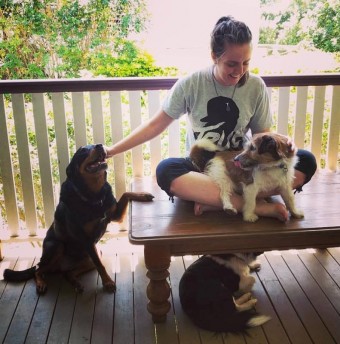Two topics which have many prospective Buyers mystified are Body Corporate Building Insurance, what it covers and what it does not cover, and Vacant Land Insurance, do i really need it…
BODY CORPORATE BUILDING INSURANCE
Buyers looking to purchase a property that is part of a strata title can find information surrounding Body Corporate Building Insurance somewhat ambiguous. Often prospective buyers are under the impression that the Body Corporate Building Insurance is all inclusive – that they can rely solely on that insurance for any unforeseen circumstances or claims that may arise during the settlement process or after settlement. This in fact, could not be further from the truth and Buyers are at risk of being liable for damage caused to the property, land, or third parties, that are not normally covered by the Body Corporate Building Insurance.
While all Body Corporate Building Insurance policies will differ slightly in their inclusions and exclusions, some of the items that one could expect such a policy to include might be:
- common areas;
- garden equipment;
- wiring;
- lifts;
- swimming pools;
- car parks;
- walls;
- windows;
- gardens; and
- ceilings and floors.
Some Body Corporate Insurance policies may include cover for some additional items found in common areas. These may include things such as:
- carpets within a hallway, entrance or lobby;
- mirrors;
- indoor and outdoor furniture;
- barbecue equipment; and
- pot plants.
Items that are not normally covered by Body Corporate Building Insurance are items such as:
- Public Liability inside the Lot;
- carpets;
- light fittings;
- mobile or fixed air conditioning;
- internal window coverings;
- furniture;
- household appliances (e.g. dishwashers); and
- valuables and personal equipment.
Buyers need to contact their insurance company when purchasing a strata property to arrange insurance which covers them for:
- Internal fittings and fixtures/fitout;
- Public liability/Injury; and
- Personal property and effects.
VACANT LAND INSURANCE
It is a common misconception that it is not necessary to take out insurance when purchasing a vacant block of land. While building insurance on a vacant land block is not necessary, for obvious reasons, there are still other relevant risks that Buyers need to insure themselves against. Public Liability insurance is essential when it comes to protecting oneself from possible claims relating to bodily injury or property damage. For example, if someone were to have an accident and injure themselves on your property this type of insurance would protect you as the owner of the land against a damages claim. The insurance policy may also help to cover any legal fees incurred in the process of such a claim.
If you are already a homeowner there is a simple option when taking out land insurance and that is to add the land insurance to your home insurance policy. Many insurers will extend coverage to include the vacant land as an umbrella policy. If you are not a homeowner then you can simply purchase a separate insurance policy for your vacant land from an insurer of your choice.
On a final but important note, when purchasing property in Queensland, whether it is vacant land or a lot within a community title scheme, the property will generally be at the Buyer’s risk from 5:00pm on the first Business Day after the Contract Date. Therefore, it is also very important for Buyer’s to consider the timing in which insurance is obtained.
Taking these simple steps will ensure you have peace of mind that regardless of what happens on your land or in your strata unit, you and your assets are covered.
Just Us Lawyers – for the best Conveyancing lawyers in Brisbane call/email Just Us Lawyers or complete our enquiry form for a quote today




